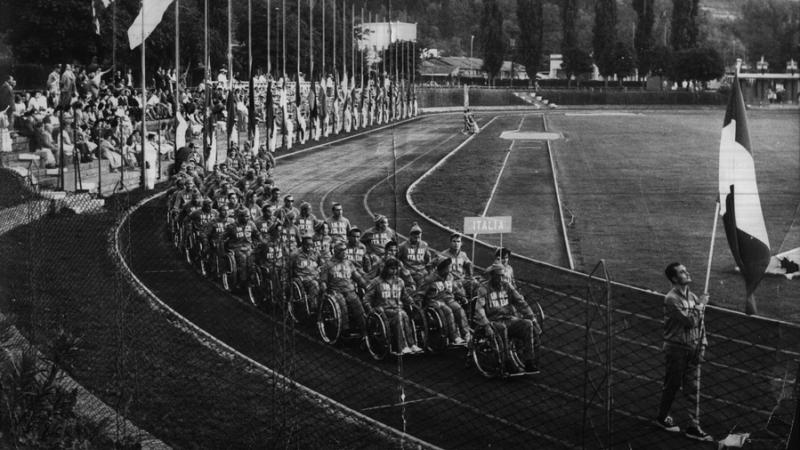

They would often not even cover women's track and field. MARANISS: Oh, absolutely, particularly the United States track and field establishment. When Wilma Rudolph won her medals in Rome - first of all, in those days, Americans tended to regard the women's events as not the real Olympic Games. SIEGEL: I want you to put that back in some context. It gave me thrills just to hear that old radio account. DAVID MARANISS (Author): Thank you, Robert. Those games are the subject of David Maraniss' "Rome 1960: The Olympics That Changed the World." And David Maraniss, welcome. SIEGEL: Wilma Rudolph, winning one of her three gold medals in the 1960 summer games in Rome. There she is, number 117, the winner by about four yards over… Yetta Heine moving into second place, running into a very strong headwind. It's Wilma Rudolph of the United States in the lead. She's already taken the lead as she goes down the stretch.

(unintelligible) Look at Wilma move up as she comes around that turn. There's Wilma Rudolph on the inside, closest to the pole. Unidentified Man: (unintelligible) final for the lady's 200 meters. Some events are more historic than others, like this one. Some Olympic games are more noteworthy than others. So set against that century-old tradition of hyperbole and self importance, David Maraniss' new book provides some corrective balance.

The music all sounds like imperial fanfares, the games are part of a global movement that aspires to transcend to politics. For the people who organized the Olympics and those who broadcast the games, too much is never enough. I'm Michele Norris.Īnd I'm Robert Siegel. From NPR News, this is ALL THINGS CONSIDERED.


 0 kommentar(er)
0 kommentar(er)
